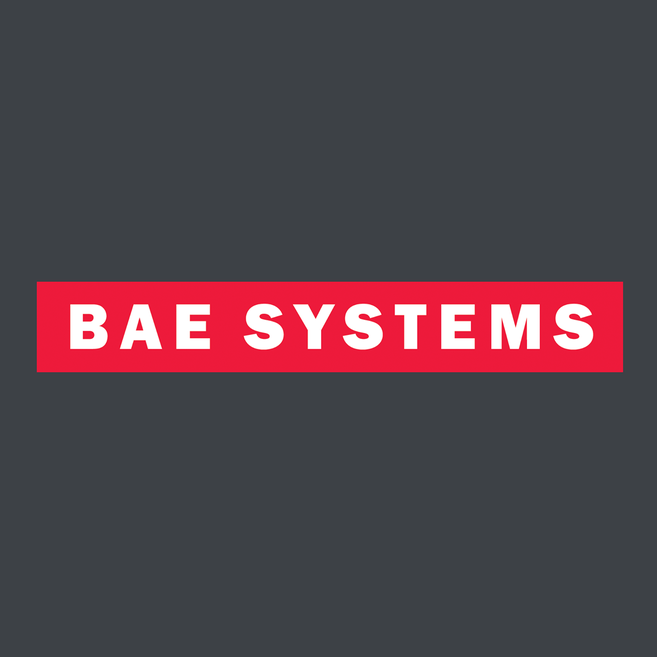UK’s Defense Deal Dilemma: A Tug of War with the EU
March 23, 2025, 3:57 pm

Location: United Kingdom, England, London
Employees: 10001+
Founded date: 1906
Total raised: $695.52M
The UK is caught in a web of uncertainty as it seeks to navigate the complex waters of European defense cooperation. The recent decision by the European Union to limit access to its €150 billion ($162 billion) weapons fund has thrown a wrench into Prime Minister Keir Starmer's plans. The clock is ticking toward a pivotal summit in May, where hopes for a breakthrough defense pact hang in the balance.
The EU's decision to exclude the UK from direct participation in the armament fund has raised alarms in London. The stakes are high. The UK desires a preliminary security deal at a “reset summit” in London, but the path forward is fraught with complications. The EU has made it clear: a defense pact is a prerequisite for full access to the fund. This is a classic case of “no deal, no access.”
The backdrop is the lingering tension from Brexit. The UK fears that countries like France will leverage this situation to link negotiations on defense with contentious post-Brexit issues such as fishing rights and energy. It’s a game of chess, where every move counts. British officials have long argued for a separate negotiation on security, hoping to keep contentious issues off the table. But the EU's stance complicates this strategy.
The UK’s ambition to join the fund is not just about access to financial resources. It’s about ensuring that British defense companies, like BAE Systems and Rolls Royce, can compete on an equal footing with their European counterparts. The fund would allow EU member states to use loans to place orders with UK firms, a lifeline for the British defense industry. Yet, the door remains partially closed.
Starmer’s diplomatic efforts to mend ties with the EU since taking office have faced a significant setback. The recent resurgence of old disputes, particularly with France, highlights the fragility of this newfound camaraderie. The warm exchanges between Starmer and French President Emmanuel Macron seem to be overshadowed by the realities of post-Brexit negotiations. It’s a reminder that in diplomacy, the past often casts a long shadow.
A senior French official has indicated that prioritizing European industry in the fund is a logical step, given that it is backed by the EU’s budget. This sentiment underscores the competitive nature of defense procurement in Europe. The UK’s exclusion from the fund is not merely a bureaucratic oversight; it’s a strategic decision rooted in the EU’s desire to bolster its own defense capabilities.
In the coming days, Starmer is expected to engage in discussions with Macron to seek a resolution that would pave the way for a security pact and grant the UK full access to the fund. However, British officials are wary. They believe that France’s influence in the negotiations could hinder progress. The stakes are high, and the outcome remains uncertain.
The May 19 summit looms large on the horizon. It was intended to showcase the UK’s renewed interest in European defense cooperation. However, without tangible achievements, it risks becoming another missed opportunity. The transatlantic alliance is already under strain, with US President Donald Trump’s unpredictable foreign policy adding to the uncertainty. The UK’s defense strategy must adapt to these shifting dynamics.
Some EU officials have floated the idea of prioritizing a defense and security agreement while postponing discussions on fisheries. This approach could provide a glimmer of hope for the UK. Yet, the timeline for such an agreement remains murky. The UK’s optimism is tempered by the reality that the road ahead is riddled with obstacles.
Currently, Norway and Iceland, as members of the EU’s single market, can participate directly in the fund. The UK, along with Canada and Turkey, can contribute up to 35% of a defense product. However, exceeding this threshold requires a partnership accord. This limitation underscores the UK’s precarious position in the European defense landscape.
Starmer recently held discussions with leaders from the EU, Iceland, Norway, and Turkey, emphasizing the need for military equipment to keep pace with emerging threats. The message is clear: collaboration is essential. Yet, the UK’s partial exclusion from the fund is a stark reminder of the consequences of its 2016 decision to leave the EU. The repercussions continue to unfold.
As the May summit approaches, the question remains: will the UK be able to secure a defense pact that grants it access to the weapons fund? The answer is uncertain. Some EU officials suggest that the UK may need to contribute financially to the fund to gain access. This raises further questions about fairness and equity in defense spending.
The German Ambassador to the UK has highlighted the complexities of the situation. EU taxpayers’ money cannot simply flow into British companies without a clear framework. The potential for a solution exists, but it requires careful negotiation and compromise.
In conclusion, the UK’s quest for a defense deal with the EU is a high-stakes game. The interplay of national interests, historical grievances, and strategic calculations shapes the landscape. As the clock ticks down to the May summit, the UK must navigate these turbulent waters with skill and determination. The outcome will not only impact the UK’s defense industry but also its standing in the broader European security architecture. The stakes have never been higher.
The EU's decision to exclude the UK from direct participation in the armament fund has raised alarms in London. The stakes are high. The UK desires a preliminary security deal at a “reset summit” in London, but the path forward is fraught with complications. The EU has made it clear: a defense pact is a prerequisite for full access to the fund. This is a classic case of “no deal, no access.”
The backdrop is the lingering tension from Brexit. The UK fears that countries like France will leverage this situation to link negotiations on defense with contentious post-Brexit issues such as fishing rights and energy. It’s a game of chess, where every move counts. British officials have long argued for a separate negotiation on security, hoping to keep contentious issues off the table. But the EU's stance complicates this strategy.
The UK’s ambition to join the fund is not just about access to financial resources. It’s about ensuring that British defense companies, like BAE Systems and Rolls Royce, can compete on an equal footing with their European counterparts. The fund would allow EU member states to use loans to place orders with UK firms, a lifeline for the British defense industry. Yet, the door remains partially closed.
Starmer’s diplomatic efforts to mend ties with the EU since taking office have faced a significant setback. The recent resurgence of old disputes, particularly with France, highlights the fragility of this newfound camaraderie. The warm exchanges between Starmer and French President Emmanuel Macron seem to be overshadowed by the realities of post-Brexit negotiations. It’s a reminder that in diplomacy, the past often casts a long shadow.
A senior French official has indicated that prioritizing European industry in the fund is a logical step, given that it is backed by the EU’s budget. This sentiment underscores the competitive nature of defense procurement in Europe. The UK’s exclusion from the fund is not merely a bureaucratic oversight; it’s a strategic decision rooted in the EU’s desire to bolster its own defense capabilities.
In the coming days, Starmer is expected to engage in discussions with Macron to seek a resolution that would pave the way for a security pact and grant the UK full access to the fund. However, British officials are wary. They believe that France’s influence in the negotiations could hinder progress. The stakes are high, and the outcome remains uncertain.
The May 19 summit looms large on the horizon. It was intended to showcase the UK’s renewed interest in European defense cooperation. However, without tangible achievements, it risks becoming another missed opportunity. The transatlantic alliance is already under strain, with US President Donald Trump’s unpredictable foreign policy adding to the uncertainty. The UK’s defense strategy must adapt to these shifting dynamics.
Some EU officials have floated the idea of prioritizing a defense and security agreement while postponing discussions on fisheries. This approach could provide a glimmer of hope for the UK. Yet, the timeline for such an agreement remains murky. The UK’s optimism is tempered by the reality that the road ahead is riddled with obstacles.
Currently, Norway and Iceland, as members of the EU’s single market, can participate directly in the fund. The UK, along with Canada and Turkey, can contribute up to 35% of a defense product. However, exceeding this threshold requires a partnership accord. This limitation underscores the UK’s precarious position in the European defense landscape.
Starmer recently held discussions with leaders from the EU, Iceland, Norway, and Turkey, emphasizing the need for military equipment to keep pace with emerging threats. The message is clear: collaboration is essential. Yet, the UK’s partial exclusion from the fund is a stark reminder of the consequences of its 2016 decision to leave the EU. The repercussions continue to unfold.
As the May summit approaches, the question remains: will the UK be able to secure a defense pact that grants it access to the weapons fund? The answer is uncertain. Some EU officials suggest that the UK may need to contribute financially to the fund to gain access. This raises further questions about fairness and equity in defense spending.
The German Ambassador to the UK has highlighted the complexities of the situation. EU taxpayers’ money cannot simply flow into British companies without a clear framework. The potential for a solution exists, but it requires careful negotiation and compromise.
In conclusion, the UK’s quest for a defense deal with the EU is a high-stakes game. The interplay of national interests, historical grievances, and strategic calculations shapes the landscape. As the clock ticks down to the May summit, the UK must navigate these turbulent waters with skill and determination. The outcome will not only impact the UK’s defense industry but also its standing in the broader European security architecture. The stakes have never been higher.

